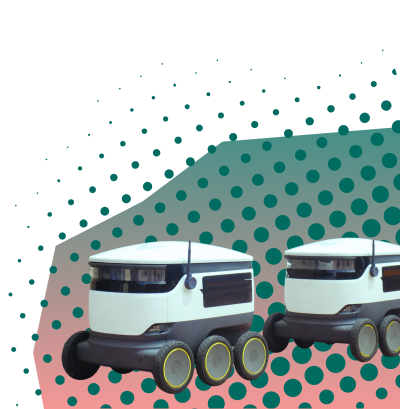Green careers, referring to roles that contribute to the transition of a low-carbon economy, have been on the rise for the past few years. In 2019, there were 10 times more jobs in the US green economy than in the fossil fuel industry.
The global pandemic has spurred this growth on, driving economists and world leaders to re-focus their attention on addressing environmental concerns and mitigating any future damage from pandemics. Their answer is to encourage policymakers to invest in sustainable industries.
Policies have already been put in place; in 2019, the EU committed to being the first carbon-neutral continent, and President Biden advocated climate change as a national security priority in his election. As a result of green global policies, it is thought by 2030, 24 million jobs will be created worldwide in sustainable employment.
Despite being a maturing market, the demands of sustainability are paving the way for high-quality careers. But what are they? We explore some green professions predicted to climb in the coming years.
A New Drive For ‘Green’ Talent
Not only is the energy industry adopting a shift in skills, but many other industries will also start to transform the way they work to be more sustainable. For example:
- Product Managers will be expected to understand sustainable product design, such as low-profile packaging and designing products that are intended for reuse at inception.
- Data engineers will have to focus efforts on reducing the energy load of their computing and processing infrastructure.
“Green jobs are not only new types of jobs but also traditional jobs that have been modified in a green perspective”, Morning Future.
What Green Careers Are Set To Grow In The Future?
-
Sustainability Systems Developers
A green economy demands a strong group of specialized software developers and engineers to design, build and maintain the network of sensors and stochastic modelling to strengthen the workings of wind farms, smart energy grids and congestion pricing, amongst other systems.
Coders with experience using large-scale enterprise resource planning and developers familiar with Open Source and Web 2.0 Applications have an advantage in the war for talent.
-
Clean Transport
No other energy demand sector has been impacted by Covid-19 as much as the transport industry. A reduction in public transport and ridership due to government lockdowns and fear of catching the virus, as well as policies to decarbonise transport, have altered how consumers view and use transport.
Land transport accounts for more than 60 million direct jobs around the world, representing over 2% of global employment. Accelerating renewable mobility through the electrification of private passenger and freight transport is just one of the areas in which the skillsets of engineers, product designers, and data insight teams will be affected.
Other important divisions are automation, shared mobility, cycling, hyperloop transport systems, delivery drones, and “buy local” or “short circuit” economies.
-
AgTech
Over the past two years, venture capitalists have invested $4 billion in AgTech startups. This has guided the trend towards vertical farming, which is only feasible if there is technology to support it.
Technology can be used to enhance farming in a variety of ways, heightening demand for software developers, data analysts and marketing teams. Sourcing demand for supply, increasing crop yields and crop protection, developing genetic technology and streamlining the supply chain to be transparent are some of the ways farming is predicted to transform.
-
New Plastics
The emergency to eliminate as much plastic as possible from our products is imminent. Adopting a circular strategy that designs out plastic waste by reusing, recycling and repairing plastic material is thought to reduce greenhouse gas emissions by 25%.
As companies start to embrace new plastics, key jobs will include engineers employed in research and innovation, procurement experts who can develop and source 100% recycled packaging, experts in post-consumer waste management, and commercial managers to oversee the launch of new products.
-
Smart Buildings
New research suggests more than 80% of new constructions incorporate at least one type of IoT or related smart building technology. Unsurprisingly, the commercial smart building market is expected to grow within the next five years to more than $51 billion globally.
The growing need for building automation is one of the major factors propelling this green industry, with market potential particularly strong in offices, warehouses, hotels and retail spaces. Powered by IP-connected devices, sensors, networks, and artificial intelligence, the new demand creates a job market reliant on low-voltage engineers, consultants and designers.
With a flourishing ecosystem of companies advocating a sustainable tomorrow, there are more green careers in the sector than ever before. As specialists in the market, we connect with GreenTech leaders every day, working with them to build and scale their teams. If you are seeking a new career path that has the potential to change the world, get in touch.












